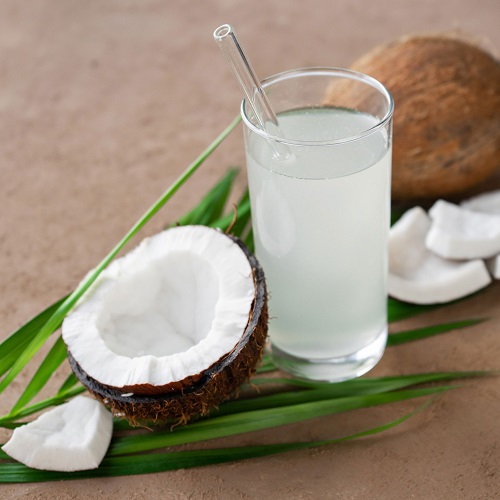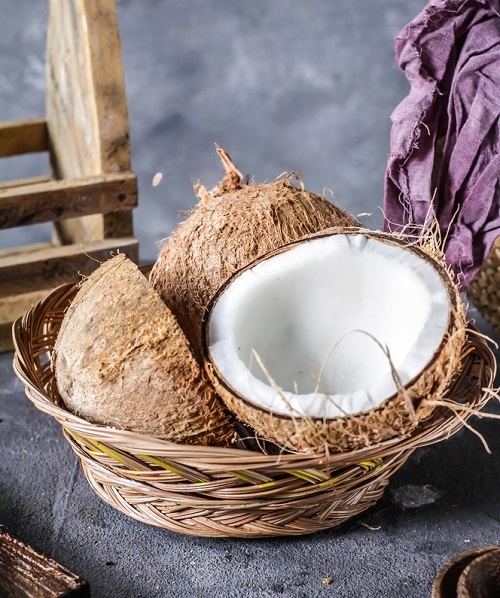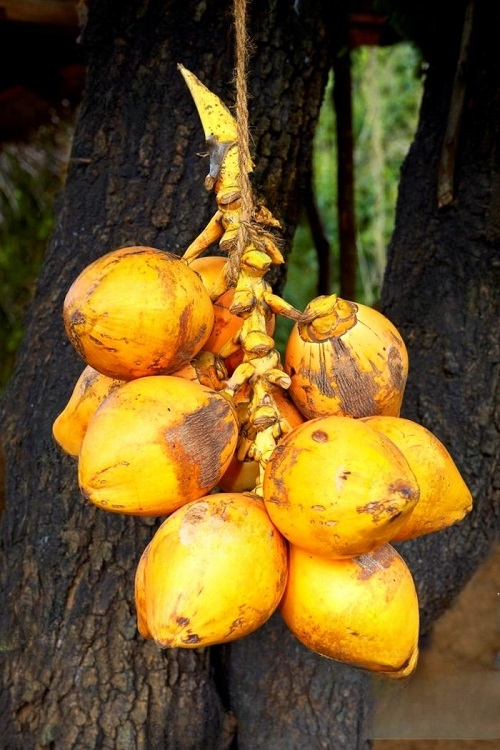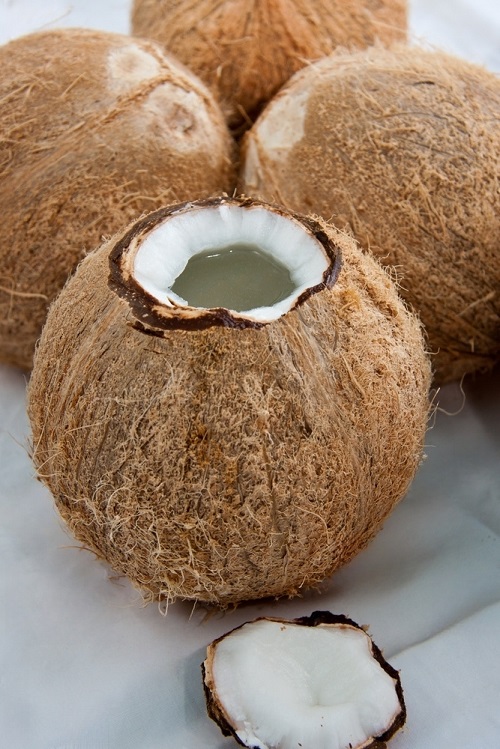Is Coconut a Fruit? Or is it a Nut? Read this detailed article to clear all your confusion related to the identity of this superfood!
Dive into the captivating world of coconuts and uncover the age-old question: Is Coconut a fruit or a nut? In this text, we’ll unravel the fascinating botanical puzzle behind the coconut’s true identity. Stay tuned for the juicy details that will forever change the way you see this tropical wonder.
Is Coconut a Fruit?
Don’t know if Coconut is a fruit or a nut? We’ve got you covered! In botanical terms, coconut is a one-seeded drupe or a dry drupe containing a seed. The white flesh inside the hard woody shell is a part of the seed.
Botanically, it is termed as an Eendosperm containing a clear liquid that we also know as coconut juice or water. It includes three layers:
- Exocarp: The green hull, which is the outer shell.
- Mesocarp: A fibrous layer or husk that comes in the middle part.
- Endocarp: The hard woody part that contains seeds.
Now, let’s get to the big question: Is coconut a fruit or a nut? Well, it’s a bit of both! According to the science of plants, coconut is a type of fruit called a single-seeded drupe. But because it has “nut” in its name, it can be a little confusing for coconut fans.
So, you can call it a fruit, a nut, or just delicious – it’s all true!
Is Coconut a Nut?
Still not sure about “Is the coconut a nut or a fruit?” Let us explain. According to botanists, a nut is a kind of fruit consisting of a shell and seed. Thus, coconut can be both a fruit and a nut. Even though coconut has a hard shell and a seed, still, coconut cannot be considered as a real nut.
The factor that discriminates coconut from the nut category is its formation. While coconut has three layers, a nut has only one layer around the seed. After full growth, the outer shell (Endocarp) of the nut becomes hard and stony, which secures the seed inside.
Real nuts are Indehiscent (that do not open on their own while reaching maturity) such as, Pecans, Acorn, Walnuts, Chestnut and, Hazelnuts.
However, coconuts are Dehiscent (splitting or bursting open), and their seeds germinate and sprout from the end of the shell (from three open pores) that ultimately break open (Dehisces).
World Leaders Of Coconut Production
Coconuts are grown around the world in a total of 80 countries. The Philippines and Indonesia are the biggest producers of coconuts, followed by India, Sri Lanka, and Brazil. These countries cover about 80 percent of the total world’s coconut production.
Do Coconuts Grow On Palm Trees?
The Versatility Of Coconut!
Every part of this exotic tree is valuable and never goes to waste. Here are the benefits of Coconuts.
- The coir or husk, that tough, fibrous part of the coconut fruit, finds its way into many everyday products, from durable ropes to sturdy doormats and even enriching compost.
- From the coconut husk, we also get cocopeat, a valuable resource with a range of applications.
- Dive into the heart of the coconut, and you’ll find water that’s not only incredibly refreshing but also packed with protein, vitamins, and essential minerals, providing a natural source of hydration and a burst of energy.
- Coconut oil, extracted from this versatile fruit, isn’t just any oil; it boasts a wide array of medicinal, topical, and nutritional properties, making it a true multi-purpose marvel.
- The milky white flesh inside a coconut is a culinary superstar with global appeal, gracing the recipes of countless dishes around the world.
- And let’s not forget coconut milk, a culinary gem particularly adored in Southeast Asian cuisines, where its creamy richness enhances a wide variety of dishes.
Nutritional Facts About Coconut
Coconuts are power-packed and healthy for the human body. Here is the nutritional wonder of coconuts.
- Nutrient-Rich Powerhouse: Coconuts are a nutritional treasure trove, brimming with a diverse range of essential minerals, fiber, proteins, and amino acids, making them an excellent addition to your diet.
- Bone Health Support: One standout feature of coconuts is their high manganese content. Manganese is a mineral vital for maintaining strong and healthy bones, making coconut consumption a natural way to promote bone health.
- Cell Protection: In addition to manganese, coconuts also offer generous amounts of copper, iron, and selenium. These trace minerals play crucial roles in safeguarding your body’s cells from oxidative stress and damage.
- Heart-Healthy Benefits: Incorporating coconuts into your diet may lead to improved cholesterol levels. Furthermore, coconuts are known for their potential to aid in reducing stubborn belly fat, a factor often associated with heart-related ailments.
- Blood Sugar Regulation: The combination of fiber and healthy fats found in coconuts can help in maintaining stable blood sugar levels, making them a valuable choice for individuals concerned about glucose management.






